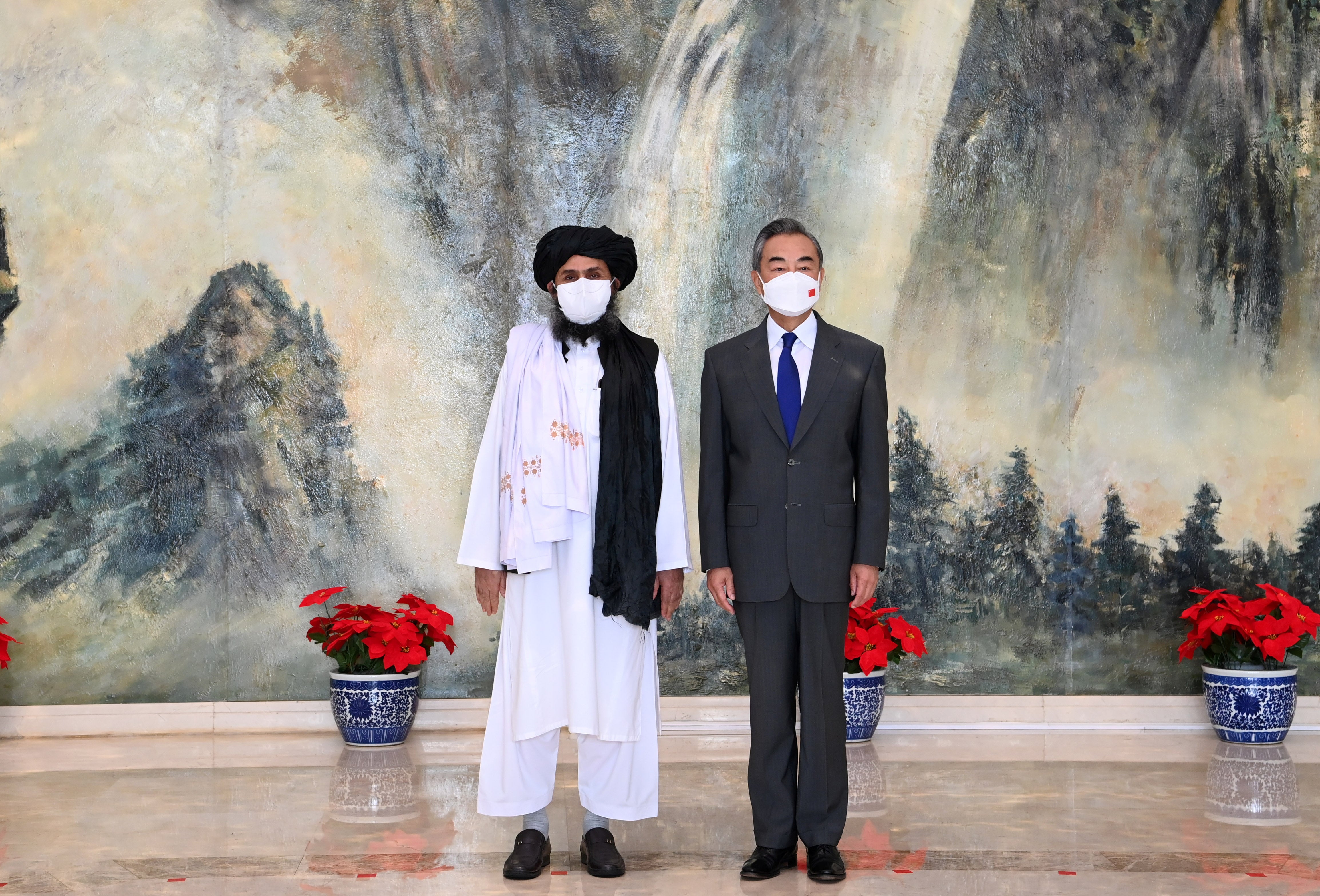China ready for ‘friendly relations’ with the Taliban
China is cautiously assessing what might be the best approach to handle its bilateral relationship with the group, writes William Yang

As foreign governments move to evacuate their citizens from Afghanistan, China has said it is ‘ready for friendly relations’ with the Taliban and is one of the few countries whose embassy in Kabul remains operational.
The Chinese Foreign Ministry spokesperson Hua Chunying said during the daily press briefing on Monday that Beijing respects Afghan people’s right to determine their own destiny and that the Chinese government hopes to keep developing a cooperative relationship with Afghanistan.
“The Taliban have repeatedly expressed their hope to develop good relations with China, and that they look forward to China’s participation in the reconstruction and development of Afghanistan," she said.
Despite the relatively calm and positive response from Beijing, some experts think the statement reflects China’s careful, yet pragmatic approach to handle its relationship with the Taliban.
China’s concern is mainly about whether the Taliban would interfere in its internal affairs in Xinjiang or not
“China has been preparing for this scenario for some time and they have been given the political signals now and before this,” said Andrew Small, a senior fellow at the German Marshall Fund.“They are pragmatically ready to adapt to the new reality and I think that’s going to keep being the case.”
A top level Taliban delegation met with Chinese Foreign Minister Wang Yi in Tianjin last month, promising that Afghanistan would not be used as a base for militants.
But although China may be prepared for the Taliban to reclaim power in Afghanistan, there are still concerns that could complicate the bilateral relationship. “China is concerned about the spillover effect of the Taliban’s rise in the region, as it could potentially impact Beijing’s economic interests in Central Asia and Pakistan,” Small told The Independent.
According to Niva Yau, a researcher at the OSCE Academy in Kyrgyzstan, in addition to China’s economic investment in the region, China also relies on some of its Central Asian neighbours for natural resources like gas and natural gas.
If instability within Afghanistan spills over to Central Asia, it could potentially disrupt the supply line that China relies on. “All of these investments are only one border away from Afghanistan and they are worth billions of dollars,” she said.
The complexity of tribal politics in Afghanistan is not in China’s comfort zone, so they need the Pakistanis in particular to figure these things out
China’s concern about a Taliban-led Afghan government is not only limited to its economic interests, however. Over the last two decades, Beijing has benefited from the stability that came with the American military presence. But with the withdrawal of US troops, China is now concerned about Afghanistan possibly becoming the base of militants with links to Xinjiang.
“China’s concern is mainly about whether the Taliban would interfere in its internal affairs in Xinjiang or not,” said Shi Yinhong, professor of International Relations at Renmin University in China.
“While China has highlighted this concern during the bilateral meeting with Taliban representatives in Tianjin last month, Taliban’s past behaviour and the rampant pride resulting from its recent victory may cause the Chinese government not to believe in promises made by the Taliban ,” he added.
To be better prepared for the potential security risks, Andrew Small says China will need to keep working closely with Pakistan. “The complexity of tribal politics in Afghanistan is not in China’s comfort zone, so they need the Pakistanis in particular to figure these things out,” he said.
Apart from the security concerns, China could also face an awkward situation of how to allocate its investment to different factions within the Taliban during talks about post-war reconstruction. Niva Yau says the only reason why factions within the Taliban can remain so united is because they are fighting against the Afghan government force. But once the war is over, there could be small or large-scale infighting between different factions.
“The local leaders of Taliban will fight over who rules over those lands that have resources and China would face a situation where they can’t work with all the factions,” she told The Independent. “This is not going to be easy for China to handle in recognizing who to trust and who they will financially support.”
While foreign experts think China would face an awkward situation in Afghanistan following Taliban’s rise to power, Chinese media think otherwise. In a piece published on August 15, the state-run tabloid Global Times argued that since China has always adhered to “the principle of non-interference” in Afghanistan, it will not face an awkward situation in Taliban-led Afghanistan.
“Totally unlike the US, China has a friendly image in Afghanistan. Therefore, China will not be an enemy of either party in Afghanistan, and neither party will make China an enemy,” wrote the Global Times. “There is no ‘awkward’ reality for China at all.”
Join our commenting forum
Join thought-provoking conversations, follow other Independent readers and see their replies
Comments
Bookmark popover
Removed from bookmarks